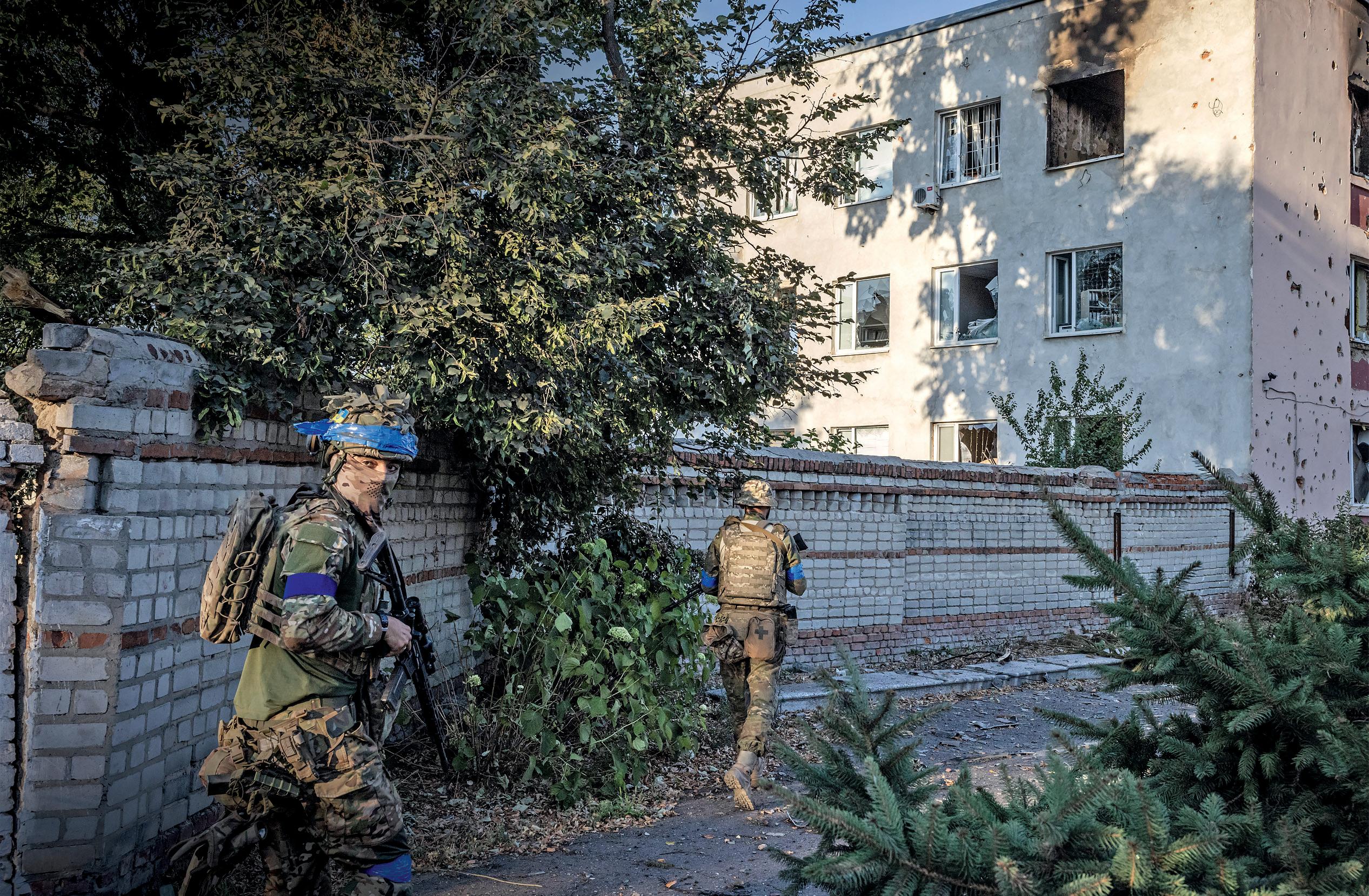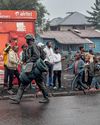
On a recent morning deep in Ukrainian-occupied Russia, three soldiers from a Ukrainian special operations team jumped into their car, the back windscreen missing after being smashed out the previous day by explosives dropped from a Russian drone, and sped away in the direction of Ukraine.
Six hours later, they would be in Kyiv, together with a precious cargo of documents stashed in boxes piled on the back seat, the fruits of a four-day mission into enemy territory for the trio. The documents included Russian interior ministry papers and military orders, seized from official buildings in Sudzha, the town at the heart of Ukraine's surprise Kursk operation, and from abandoned Russian trenches nearby.
"At the time it was all a blur, it's only later when you come out that you realise where you've just been and what you've been doing," said Artem Kariakin, one of the three, talking just hours after leaving Russian territory.
Ukraine's incursion into Russia, now in its fourth week, was shocking in its audacity, and has laid down an unexpected challenge to the Kremlin. Suddenly, it is Russian flags that are being pulled down from administrative buildings, Russian civilians who are taking shelter as soldiers of a foreign army patrols their streets, and Russia which is scrambling to prove it has control of its own long-established borders.
Even as Ukrainian troops come under sustained pressure on other parts of the frontline, the dash into Russia has provided a much-needed morale boost inside Ukraine, after months of relentlessly bleak news.
"They're in a desperate David versus Goliath battle and this appeals to their rebellious spirit," said one western diplomat in Kyiv, adding that the Kursk operation had boosted the mood among the political elite immeasurably in recent weeks.
This story is from the September 06, 2024 edition of The Guardian Weekly.
Start your 7-day Magzter GOLD free trial to access thousands of curated premium stories, and 9,000+ magazines and newspapers.
Already a subscriber ? Sign In
This story is from the September 06, 2024 edition of The Guardian Weekly.
Start your 7-day Magzter GOLD free trial to access thousands of curated premium stories, and 9,000+ magazines and newspapers.
Already a subscriber? Sign In

What is DEI and why is Trump waging war against it?
When American voters headed to the ballot box in November, opinion polls suggested the cost of living, immigration and reproductive rights ranked among their biggest concerns.

Who are M23 rebels and why is there fighting in eastern DRC?
The armed group M23 and Rwandan soldiers entered the centre of Goma last Sunday after weeks of advancing on the main city in the Democratic Republic of the Congo's North Kivu province.

Aid distribution What Israel's ban on Unrwa may mean for Palestinians
Israel this week insisted it would not back down over its plan to close the Gaza operations of the United Nations Relief and Works Agency for Palestine Refugees (Unrwa), even though critics said the move would jeopardise urgent humanitarian aid efforts.

Anti-terror strategy failed to stop a killer
Southport attacker's lack of coherent ideology meant the Prevent scheme did not see him as a potential risk, exposing the need for reform
Last writes
Handwriting is disappearing - we are far more likely to use our hands to type or swipe than pick up a pen. But in the process are we in danger of losing cognitive skills, sensory experience and a connection to history?

I just want to hug those girls' Bittersweet joy and relief as freed soldiers return home
Nineteen-year-old Naama Levy became an indelible symbol of Hamas’s 7 October 2023 attack on Israel.

Eighty years after the liberation of Auschwitz, survivors call for courage amid the rise of hatred and antisemitism 'We must avoid the mistakes of the 1930s'
On a day of startling blue skies, Auschwitz survivors stood before princes and presidents on Monday to remind the world, perhaps for the final time, of the horrors they suffered there during one of the darkest moments of human history.

Davos lessons Trump's return heralds new era of harsh global competition
In the heady mountain air of Davos last week, away from the parties and the backslapping tech bros, another, more beleaguered crew touted their wares: the multilateralists.

Can the continent's publishing industry turn a page?
Tsitsi Dangarembga's Nervous Conditions, a novel about growing up in colonial Zimbabwe, is one of the most important works of 20th-century African literature and features on university curriculums across the UK.

Trump has arrived with abang-but can he follow through?
Little more than a week ago, Stewart Rhodes was serving an 18-year prison sentence for seditious conspiracy over his role in a deadly attack on the US Capitol.